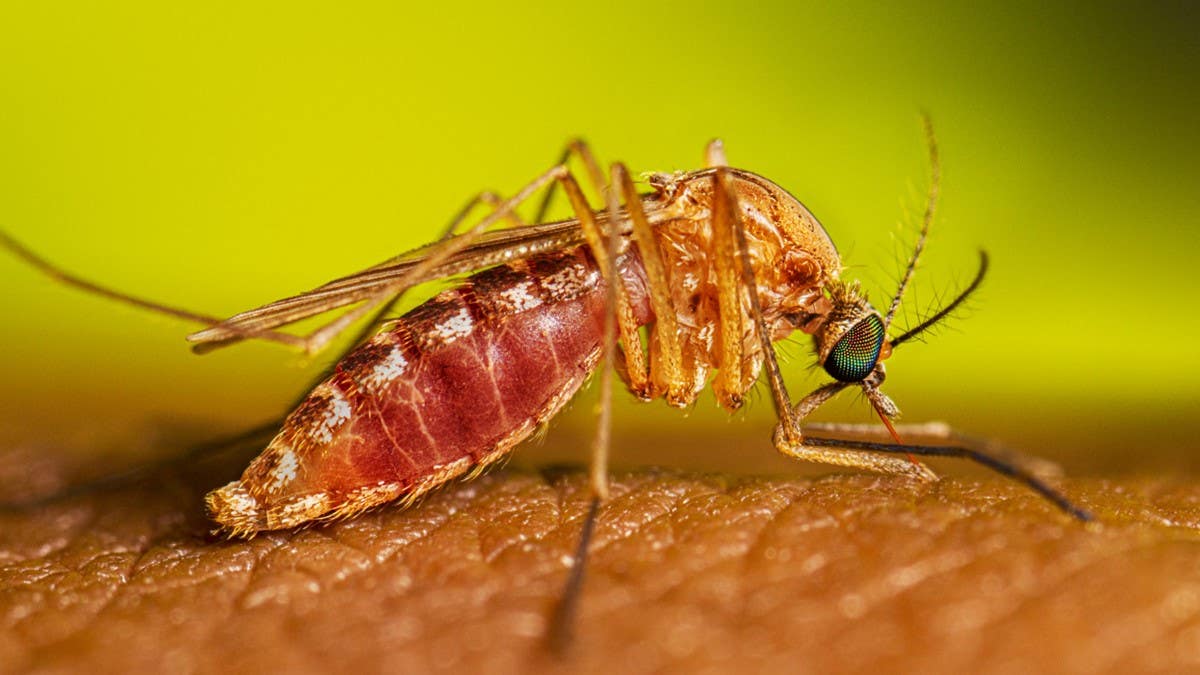Scientists discover natural mosquito killer that could save hundreds of thousands of lives each year
Researchers in Crete discovered bacteria that kill mosquito larvae within days, opening doors to safer biopesticides and reduced insecticide use.

New bacteria found in Crete kill mosquito larvae fast, offering hope for safer biopesticides. (CREDIT: CC BY-SA 4.0)
Mosquito-borne diseases kill hundreds of thousands every year. The insects spread illnesses like malaria, dengue, and West Nile Virus. Over 700,000 people die annually from these diseases, according to the World Health Organization.
For decades, people have tried to control mosquitoes with chemical insecticides. But many mosquito species have developed resistance to these chemicals. This makes it hard to keep them under control. Also, the chemicals can harm other insects and damage the environment.
A recent study offers hope. Researchers from the Institute of Molecular Biology and Biotechnology in Crete and Johns Hopkins University in Baltimore found bacteria that kill mosquitoes. Their findings were published in Applied and Environmental Microbiology.
The team included George Dimopoulos, a molecular entomologist and microbiologist, and John Vontas, a molecular biologist. They studied bacteria from Crete to see if any could kill mosquito larvae. Their results showed promise for a new type of biopesticide.
Searching for Natural Killers
For the study, the team collected 186 samples from 65 locations across Crete. The samples came from topsoil, rhizosphere soils near plant roots, plant tissues, water, and dead insects. From these, they grew 1,663 different bacterial colonies in the lab. Then they tested 788 of these bacteria against Culex pipiens molestus mosquito larvae. This species can carry harmful viruses like West Nile and Rift Valley Fever.
More than 100 bacterial isolates killed all larvae within seven days. Thirty-seven of these did it within three days. Some even killed 100% of larvae in just 24 hours. The researchers identified 20 different genera among these bacteria. Many had never been linked to insect-killing before. This means there is still a huge untapped potential in nature for finding new biopesticides.
Dimopoulos explained, “Microbes produce many compounds that have uses in insect control. But only a small number of bacteria have been studied for this.” For example, Bacillus thuringiensis and Bacillus sphaericus are the main bacteria used today to kill mosquitoes. However, these biopesticides often require multiple applications. They also sometimes fail in the field due to inconsistent effectiveness.
Related Stories
- Lifesaving Vaccine Patch Protects Against Mosquito-borne Zika Virus
- High tech mosquito repelling device requires no heat, electricity or skin contact
- Newly discovered giant sea bug named after Darth Vader
The Science Behind the Kill
The team wanted to find out how these bacteria killed the larvae. Was it because the bacteria infected the larvae, or because they produced toxic compounds? To test this, the researchers killed the bacteria with sonication, a process that breaks apart cells with sound waves. If the dead bacteria still killed the larvae, it meant that toxic compounds were responsible rather than infection.
They found that three isolates produced metabolites that achieved 100% mortality within 48 hours. These were from the genera Chryseobacterium and Pseudomonas. Further tests showed that the toxic compounds were mostly non-polar. This means they do not mix well with water, which is important for understanding how to formulate them as sprays or larvicides.
“It is promising because it suggests that an insecticide based on these bacteria would not depend on the microbes staying alive,” said Dimopoulos. He added that these compounds degrade quickly in the environment. This reduces harm to other insects and prevents toxic buildup in water or soil.
From Discovery to Real-World Use
The team is now studying the chemical structures of these toxic molecules. They want to know if they are proteins or other types of metabolites. Understanding their structure will help scientists develop effective products. They are also testing the bacteria against other mosquito species and agricultural pests. The ultimate goal is to develop safe biopesticides that could be used widely.
Dimopoulos said, “It’s now entering the basic science phase to understand the molecules’ chemical structures and modes of action, and then we’ll shift to a more applied path, really aiming at prototype product development.”
Developing a working product will not be easy. Biopesticides often break down quickly in nature. This means they may need to be reapplied more often than chemical pesticides. But their environmental benefits are worth the challenge. Unlike chemical pesticides, biopesticides do not kill a wide range of insects. They target specific pests, making them safer for bees and other beneficial species.
A Global Need for New Solutions
Mosquito control is urgent worldwide. As insecticide resistance rises, the risk of deadly disease outbreaks increases. The World Health Organization has warned that resistance threatens efforts to control malaria and other diseases. New tools are needed to fight this problem. The European Union has also pushed for safer and more sustainable pest control as part of its Green Deal. This includes reducing chemical pesticide use and finding biological alternatives.
Dimopoulos’ group has been studying bacteria that kill mosquitoes for over 15 years. They have found microbes that block malaria and dengue pathogens. Their recent work in Crete is part of the MicroBioPest project, funded by the EU, to find better ways to manage pests.
The researchers hope their discovery will lead to new biopesticide products. Such products could reduce the spread of disease and lower the use of harmful chemicals. “There is a major push toward developing ecologically friendly insecticides,” Dimopoulos noted. Microbes, he explained, are a vast source of new compounds. Yet fewer than 20,000 of the millions of bacterial species have been named. Many more could hold secrets to fighting pests.
The Road Ahead
Developing these bacterial metabolites into market-ready products will take time. Scientists must first identify the exact compounds responsible for killing the larvae. Then they need to test them for safety in other animals and in the environment. Finally, companies must figure out how to produce them in large quantities at a reasonable cost.
Despite these challenges, the discovery in Crete is an exciting step forward. It shows that nature still holds many secrets that could benefit human health and the environment. If these bacterial compounds can be developed into effective biopesticides, they could help save hundreds of thousands of lives each year.
This work also highlights the importance of exploring under-studied regions for new bacteria. Most biopesticide research has focused on known microbes in certain areas. The Mediterranean, with its unique environment, could hold many more useful bacterial species. Researchers are only beginning to scratch the surface.
In the fight against mosquito-borne diseases, every new tool counts. Chemical insecticides alone are no longer enough. Resistance has made them weaker, and environmental concerns have made them less attractive. Biopesticides offer a way forward. They work differently from chemicals, so insects are less likely to develop resistance. And because they come from natural sources, they are usually safer for the planet.
As Dimopoulos and his team continue their work, the world watches with hope. New biopesticides could transform mosquito control and make communities safer. They could also reduce the environmental damage caused by chemical insecticides. It is a win-win for people and the planet.
In the end, this study reminds us of a simple truth. Nature has evolved countless solutions over millions of years. By studying bacteria and other microbes, we can find safer, smarter ways to manage pests and protect human health. The answers are out there, waiting to be discovered.
Note: The article above provided above by The Brighter Side of News.
Like these kind of feel good stories? Get The Brighter Side of News' newsletter.



